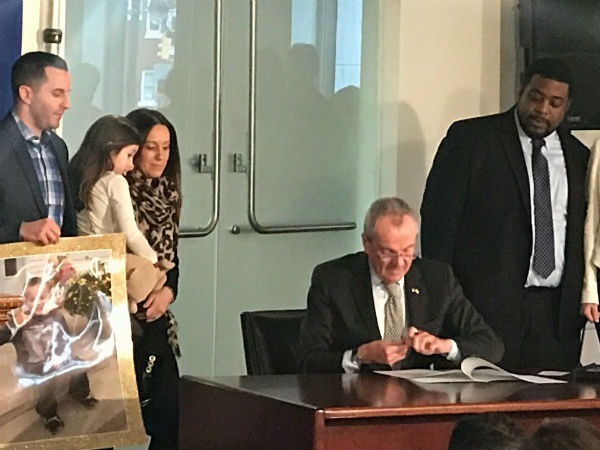It’s official: if you’re seeking a medical cannabis license in New Jersey, cancel your summer vacation plans. July and August promise to be very busy months. Today, the NJ Department of Health materially revised its current Request for Applications. Details below.
Although the number of permits to be issued this round has shrunken considerably, tomorrow, July 2, Governor Phil Murphy will be signing a major medical cannabis bill that substantially increases patient access, establishes a new regulatory overseer for the cannabis sector, and promises a much larger round of licensing (integrated and stand alone) this fall.
Key takeaways for the pending RFA round revised today:
- Book It: Application forms will be released on July 15, 2019, and are due on August 21, 2019 at 3pm for dispensaries and August 22, 2019 at 3 pm for cultivation and integrated applications.
- How Many? In total, the Department will seek up to 4 vertically integrated permits, up to 5 cultivation endorsements, and up to 15 dispensary endorsements.
- In each of the three regions (North, Central, South) the Department will seek to issue up to 2 cultivation endorsements, 5 dispensary endorsements and 1 vertically integrated (cultivation, processing and dispensing) permits.
- A fourth vertically integrated permit will be issued, with the region to be determined based on quality of application and patient need. “Because the patient population is expanding so quickly and is expected to accelerate, the Department anticipates that this flexible approach for up to 1 vertically integrated permit will allow for 1) the most qualified applicant to be chosen and 2) that the award can most adequately respond to real time changes in enrollment.”
- No processing permits will be issued this round.
- Initial Cultivation Canopy Limits: To provide opportunities for different sized businesses to participate in the RFA, the Department will seek to issue cultivation endorsements in the following tiers of canopy size:
– Up to 5,000 Square Feet: up to 1 cultivation endorsement.
– 5,001 square feet to 20,000 Square Feet: up to 2 cultivation endorsements.
– 20,001 square feet to 30,000 Square Feet: up to 2 cultivation endorsements.
- According to NJDOH, these cultivation tiers “represent the ranges of starting cultivation canopy at the ATCs awarded as part of this RFA. The maximum initial canopy for any of the awardees is 30,000 square feet. Vertically integrated applicants may choose any of the canopy tiers.”
- Limits on Number and Combination of Applications:
Entities and individuals may seek up to three total permit endorsements as part of this RFA. Applicants may only apply for one cultivation endorsement and may only submit one application per region. A separate application is required for each endorsement. An applicant for a vertically integrated permit may submit one application because all endorsements will be located within the same region. Therefore, the only applicants eligible to submit an application for more than one endorsement per region in this RFA are applicants for vertically integrated permits.
- Applicants cannot submit for both vertically integrated permits and individual endorsements.
- Applicants submitting for individual endorsements can submit applications for up to three endorsements, but they can’t be in the same region(s).
- No applicant shall be awarded more than one permit pursuant to this RFA, and no applicant shall hold more than 1 cultivation endorsement, 1 manufacturing endorsement, and 1 dispensary endorsements as a result of the awards made pursuant to this RFA.
- Except for the vertically integrated permits, no other entity shall be awarded both a cultivation endorsement and a dispensary endorsement pursuant to this RFA.
- Current ATC permit holders (including awardees from December 2018) are not eligible to participate in this RFA.
- Get Your Legal Documents Ready: NJDOH has substantially increased the disclosure requirements (of interested parties and documentation of virtually all business deals underlying an application) this round to ensure all parties interested in an application are known to the NJDOH at the time of application.
- Questions, Comments and Further Information: NJDOH will accept questions on the RFA until July 26, and will conduct a preapplication webinar on August 2. Potential applicants are strongly encouraged to present any concerns, objections or suggestions relating to the substance of the RFA by July 26, if not sooner.
- No Deadline for Award: NJDOH has not announced a deadline for making awards.
- No License Squatting: Applicants awarded the right to complete the ATC permitting process must complete facility build out and be ready to commence operations within 18 months (cultivation endorsements and vertically integrated permits) or 12 months (dispensary endorsements). If an awardee is not permitted at the end of the above timeline, or the materials submitted with the application are found to be not accurate or truthful, as applicable, the award may be rescinded.
- Criteria, Weighting and Page Limits:
Applicants must observe a strict 100 page limit per endorsement sought. Criteria weighting is as follows:
Criterion 1. Ability to meet the overall health needs of qualified patients and safety of the public. 30 pts
• Measure 1, Security plan: 10 pts
• Measure 2. Environmental impact plan: 10 pts
• Measure 3, Quality control and quality assurance plan: 10 pts
Criterion 2. History of compliance with regulations and policies governing government-regulated marijuana programs. 20 pts
• Measure 1, Experience of principals, officers, and owners, in operating a regulated cannabis business, or operating a business in another highly regulated industry, such as healthcare, insurance, financial services, pharmaceuticals, or energy. 20 pts
Criterion 3. Ability and experience of applicant in ensuring an adequate supply of marijuana. 20 pts.
• Measure 1, Financing plan: 20 pts.
Criterion 4. Community Support and Participation. 20 pts.
• Measure 1, Ties to the local community: Applicants shall provide a list of all owners, officers, board members, and principals that have resided in NJ for at least 2 years, and supply proof of their residency. 20 pts.
Criterion 5. Ability to provide appropriate research data. 10 pts
• Measure 1, Research contributions: Evidence of past contributions – in the form of cited original and published work – to expanding clinical and scientific research related to medical cannabis or the debilitating medical conditions that can be treated with medical cannabis. 10 pts
Criterion 6. Experience in cultivating, manufacturing, or dispensing marijuana in compliance with government-regulated marijuana programs. 100 pts.
• Measure 1, Cultivation plan.
• Measure 2, Manufacturing plan.
• Measure 3, Dispensary plan.
Criterion 7. Workforce and job creation plan, including plans to involve women, minorities and military veterans in ATC ownership, management and experience with collective bargaining in cannabis industries. 100 pts
• Measure 1, Labor Peace Agreement: Applicants shall provide a signed labor peace agreement that includes provisions to ensure the cultivation, manufacturing and dispensing of medical cannabis will not be disrupted by labor-related disputes. Failure to provide a signed agreement will result in a score of 0 for this measure. 30 pts.
• Measure 2, Labor compliance plan: Applicants shall provide a plan to comply with labor laws and an overview of their experience related to collective bargaining and/or accommodating the rights of workers. 20 pts
• Measure 3, Minority-owned, women-owned or veteran owned business certification: Applicants shall provide a copy of certification(s) issued by the Department of the Treasury, Division of Revenue which verifies MBE/WBE certification or VOB certification, or evidence that the applicant would otherwise meet the MBE/WBE certification or VOB certification requirements once generating revenue. Applicants with a certification will receive the full 30 pts. Applicants that provide evidence of meeting the criteria in the future shall receive partial credit, based on the strength of the evidence. The selection committee shall take into account related entities for this measure. 30 pts.
• Measure 4, Workforce and job-creation plan: Applicants will be scored on the extent to which they will involve individuals from socio-economically disadvantaged communities, individuals disproportionately impacted by enforcement of drug laws, and people with disabilities in the ownership, management and staffing of the proposed ATC. 20 pts
- Scoring criteria reflect strong union (50 out of 300 total points), MBE/WBE (30 of 300 points) and social justice (20 of 300 points) preferences.
This post summarizes key terms of interest. Potential applicants should review the complete terms of the RFA at https://www.nj.gov/health/medicalmarijuana/alt-treatment-centers/applications.shtml, and regularly consult the NJDOH website for ongoing updates.



